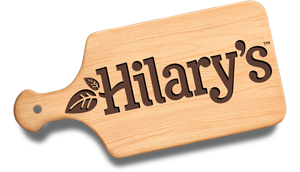Prepping Vegetables for the Winter

You’ve worked hard all spring and summer long to produce a beautiful, bountiful garden. As the weather is turning cooler, you may find that you are over run with vegetables and fruit. This is a good problem to have. With a little work and planning, you can put away your harvest to enjoy all winter long.
Fruits and vegetables, all have their own preferences on how they like to be stored, but here are the basics.
Basement or Cellar Storage
Many varieties from your garden, survive well in your cool basement. If you have grown an abundant amount of squash, you can store them in your cool basement with their stems intact. Varieties such as spaghetti squash, butternut squash and acorn squash do well in your cool basement or cellar.
Tip: Potatoes also like cooler, slightly humid storage. You can wrap your potatoes in newspaper and store in a basket.
Freezer Storage
The freezer is a great place to store your bounties. Items such as diced bell pepper, corn, onion, squash, tomatoes, beans, herbs and more do well in the freezer.
Tip for herbs: Clean and dice fresh herbs. Fill 2/3 of each individual spot of an ice cube tray cube with fresh herbs. Fill the remaining space with olive oil. Freeze the oil olive and herb cubes. When frozen, place into a baggie for easy storage. Pop out a cube when you want to sauté food or toss into a pot of soup for added flavor.
Tip for fruit: Wash and thoroughly dry fruit. Freeze fruit in a single layer on a cookie sheet, first. Then transfer to a labeled baggie for long-term freezer storage.
Canning
There are two types of canning. You water bath canning and pressure canning. Both types of canning require some equipment such as a canner, jars, lids, rings and a jar lifter.
Water Bath Canning is a quicker lower temperature process for preserving foods. It is great for foods that are high in acidity. Foods that are ideal for the water bath canning method include tomatoes, salsas, sauces, jams, applesauce and more.
Pressure Canning is a technique that is used for low-acid foods. The pressure canning method heats the contents to very high temperatures which helps to eliminate bacteria. Foods that should be canned with a pressure canner include: green beans, beets, corn, carrots and more
Dehydrating
Dehydrating is becoming a popular way to preserve food to enjoy later. Dried foods are typically easier to store because they take up less space. You do not need to take up freezer space, with dried foods. You can use your oven to dehydrate or use an actual dehydrator. Apples, pears, green beans and carrots are a few popular foods that taste delicious when dehydrated.
There are plenty of options for preserving food for the winter! Do not let all your hard gardening work to to waste! Prep your fruits and vegetables, so you can enjoy them this winter!

Cindy Gordon is a foodie who loves to blog about gluten free vegetarian/vegan recipes on her website Vegetarian Mamma. Cindy's family is dedicated to finding/creating recipes and products that fit their families dietary needs. Cindy resides in Ohio with her husband and two boys (born '07 & '10). She enjoys spending time with her family, the outdoors, gardening, wine and cooking!

